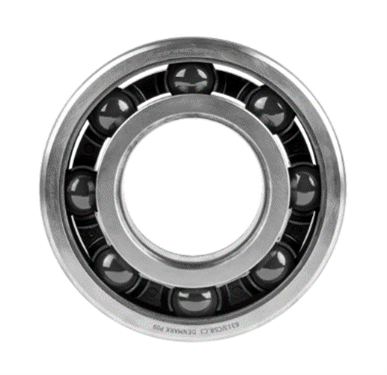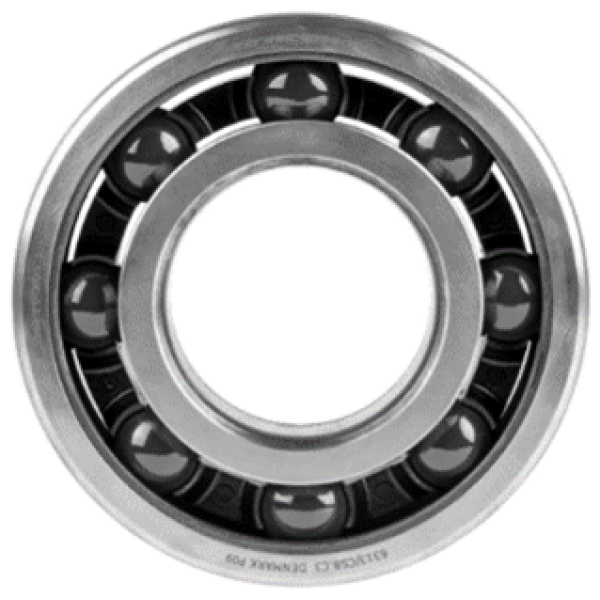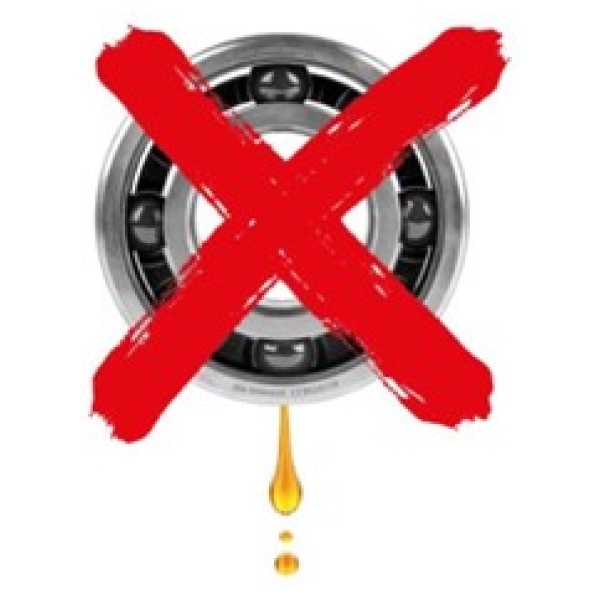Description
Balls made of silicon nitride are characterized by excellent properties in terms of smoothness and hardness and are much lighter (58%) than steel balls due to their lower density. This means that less energy is required for the drive.
However, the low weight in particular leads to a longer bearing service life and reduces the centrifugal forces acting on the raceway. Material wear is also significantly lower, which considerably extends the service life of the bearing. Another advantage is the significantly higher permissible speed of up to 50 % and therefore the possibility of using durable bearings in demanding applications with high speeds, such as machine tool spindles or turbomachinery.
Another advantage of ceramic balls over steel balls is the significantly lower coefficient of friction, which considerably reduces the need for lubrication. Less lubrication Regular lubrication is crucial for the service life of a bearing. Direct contact between the steel ball and the steel raceway can lead to rapid bearing damage. Steel on steel has a coefficient of friction of 0.8, whereas steel on ceramic has a coefficient of only 0.2 – even less with coated raceways. The use of ceramic balls therefore solves the problem of two identical materials damaging each other. In contrast to steel bearings, the extreme hardness and surface quality of ceramic balls prevents any damage to the raceways.
The CeramicSpeed product family
|
|
CeramicSpeed Insulate |
For the latest generation of electric motors> Low energy consumption |
CeramicSpeed Corrotec |
FDA/EN-1935 approved bearing for the food industry> Several times longer service life than conventional bearings |
CeramicSpeed Xtreme |
Resistant bearing for applications in heavily contaminated environment and at high temperatures> Hybrid balls with increased resistance |
CeramicSpeed SLT |
Bearings with a long service life even under the most extreme conditions> Application for heavy contamination with particles |
CeramicSpeed SlipCoat |
Bearings without lubrication – For hygienically demanding applications> FDA and EN1935 approved coating material |





